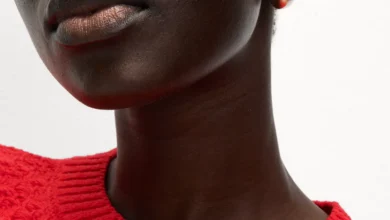Father and son killed by more than 100 Asian hornet stings while ziplining on holiday

For free real time breaking news alerts sent straight to your inbox sign up to our breaking news emails
Sign up to our free breaking news emails
Sign up to our free breaking news emails
An American teacher and his teenage son were killed by a swarm of hundreds of hornets while on a ziplining holiday in Laos.
Daniel Owen, 47, and his 15-year-old son Cooper died on October 15 while visiting an eco-adventure resort near the northern city of Luang Prabang.
Hundreds of what are believed to have been Asian giant hornets attacked the pair while they were trying to descend from a tree, a source close to two US diplomats in Laos told The Times.
Their bodies were “covered in red spots” after the “very, very painful” attack, Phanomsay Phakan, a doctor at the Phakan Arocavet Clinic where the father and son were taken, told the newspaper.
open image in gallery
Daniel Owen was director of an international school (Facebook/Quality Schools International)
“A lot of stings, more than one hundred, over the whole body. I thought already that it’s a very dangerous situation because I had never seen it as bad as that,” he said.
After the incident the father and son arrived conscious to the Phanak clinic showing no signs of anaphylactic shock – allergic directions that can kill people who have been stung by bees, wasps and hornets. However they died just hours later after they were taken to the Luang Prabang provincial hospital.
Mr Owen was director of QSI International School in Haiphong in Vietnam, and is believed to have been on holiday in Laos.
The organisation said it was “deeply saddened” to learn of the death of Mr Owen and his son.
“Dan dedicated 18 years to QSI, serving in five different schools and touching countless lives with his warmth, leadership, and unwavering commitment to education,” it said in a post on Facebook.
“He was deeply loved across our community and will be profoundly missed. Our sincere condolences go out to the Owen family and all who knew and loved them.”
open image in gallery
The Asian hornet can deliver deadly stings
Dozens of people who knew the father and son through school, work and holidays, flooded into the comments of the post to pay tribute.
Former colleague Julija Zh wrote: “Dan was a wonderful director here in Minsk. He did so much for many people. We could always go to chat with him if we needed help and Dan would do whatever he could to help.
“His son Cooper will be missed too, it’s still hard to accept and even comprehend it all.”
Former pupil Anoushka Mahar said she will “never forget all the extra time and effort Mr Owen spent with and on me since I wanted to go to university but confessed that I simply couldn’t afford higher education”.
Josh Gaines added: “My very first best friend when I went overseas to Kazakhstan. We would leave each other positive quotes on each other’s blackboards every day. The world lost two good ones.”
Green Jungle Park, where the incident occurred, extended its “deepest condolences” and said it has reviewed all existing procedures in a statement to The Times. The Independent has contacted the park for further comment.
open image in gallery
The hornets reportedly attacked the father and son while climbing down a tree (file photo) (Getty Images/iStockphoto)
Asian giant hornets are the world’s largest hornet, and is native to tropical parts of East Asia, South Asia, mainland Southeast Asia, and parts of the Russian Far East. In recent years they have spread to countries in western Europe, including the UK.
They are responsible for dozens of deaths every year owing to the power of their 6mm stinger which emits a particularly potent venom containing mastoparan-M – a toxin commonly found in wasp venom.
Last month in Spain, a man died after accidentally stepping on a hornets nest in the Galicia region. Two others died the same month.
Last year the US Department of Agriculture announced the insect – also known as the ‘murder hornet’ – had been removed from the country. It was declared eradicated in the US five years after being spotted for the first time in Washington state near the Canadian border,
A spokesman at the British Beekeepers Association, Ian Campbell, told The Times that the danger of a sting by hornets can vary from person to person, and that “there is no threshold that has been set for the number of stings”.
The Independent has contacted the US embassy in Laos for comment.



